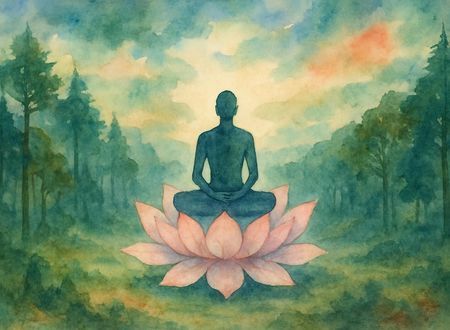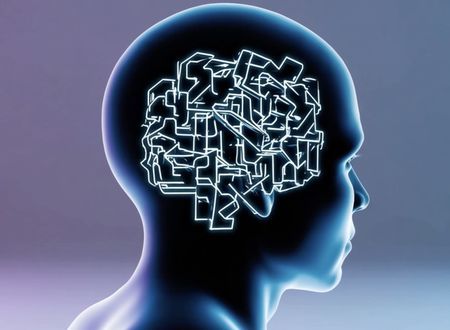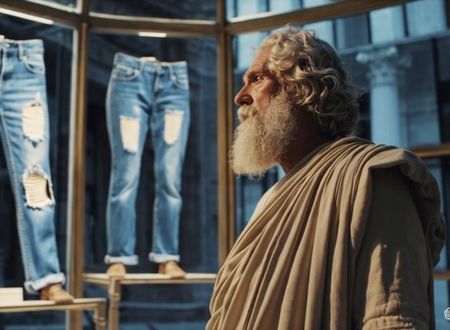I have always been fascinated with the science of health. Yes, it is a science for the most part. I grew up reading books on Ayurveda, herbs, rasayana (Vedic alchemy), and similar subjects. Call me nuts but between the ages of 7 and 13, I took over the tiny lawn in our home to grow my own organic vegetables and turned it into a veggie patch. Carrots, radish, bottle gourd, pumpkin, okra, cucumber, tomatoes, coriander, mint, eggplant, cauliflower, you name it. I lost interest eventually when I couldn’t get my pet Rocky to stop digging everything. I would come back from school sometimes only to find out that he had turned my Garden of Eden into a ravaged battlefield. Absolute mayhem. Notwithstanding that I was the one who would take him for a long walk on most days and buy his favorite bun. But no, this adorable menace couldn’t be bothered with no garden. Such a gangster, I tell you. I digress.
In my passion to lead a healthy life, and to enhance my understanding of what it entailed, I must have read over 50+ books on everything Ayurveda by the time I was 20 years old. The eureka moment for me, however, came much later when the loving and intelligent Ashwani Verma handed me The Schwarzbein Principle in 2003. That book changed everything for me. It became my North Star on all things diet. The wisdom in the book remains the basis of my diet till date.
That said, I continued to make changes to my lifestyle and munch more books on health, life, longevity, diets and the rest. (Conclusion: cream paper’s better and don’t try to eat your Kindle.) I was particularly interested in those written by medical doctors based on objective research as opposed to the ones written by fitness-gurus with subjective findings and conclusions. One such book I recently finished reading is Outlive by Dr. Peter Attia.
Dr. Attia makes a beautiful distinction between healthspan and lifespan. That is, there’s little joy in just staying alive if the aliveness is not there in your life. One’s lifespan may be 90 years but healthspan only, say, 75, post which they are not able to perform many activities they could earlier. He calls it the marginal decade and persuasively contends that we don’t have to resign to our fate of an aging body. But if someone truly wants a longer healthspan, they’d better start building their fitness now. If you haven’t read this book then I highly recommend that you do it.
Peter Attia lists the four top killer diseases worldwide and cites a ton of research that shows how prevention is the best cure. He calls them the Four Horsemen. They are:
1. Cardiovascular disease
2. Cancer
3. Neurodegenerative disease
4. Type 2 diabetes and metabolic dysfunction
The single most potent drug against all four is exercise. Often when we talk about exercise, we have our preferences. Some of us just like leisure long walks, some prefer running, many swear by yoga or pilates and the likes. But, research after research after research has proven it beyond any doubt that if you really care about living a healthy life well into the later years of your life, you have to factor in strength training and cardio. Without strength training, you will continue to lose muscle mass (and bone density).
While this post is not meant to be a summary of Outlive, I thought it would be helpful to list the three most important factors that directly impact the quality of your life as you age. As follows:
Exercise
Dr. Attia posits (based on excellent research) that your exercise regime must encompass the following:
- Stability: He calls it the foundation and, says, “Stability is the cornerstone upon which your strength is delivered, your aerobic performance is delivered and your anaerobic performance is delivered. And it’s the way that you do so safely.”
- Strength Training: Approximately three days a week, train with weights. Progressively increase to the point of failure. Believe me, no matter how tempted you may be, do not dismiss the acute importance of strength training.
- Zone 2 Training: Think of brisk walking. You can also do it on a treadmill, bike (stationary or a bicycle) or a cross-trainer. Zone 2 training is maintaining your heart rate at 70-80% of your maximum heart rate. If you are training on an elliptical, for example, and your maximum heart rate is 180, your goal should be to maintain your heart rate between 124 – 144. The closer you stay to the upper threshold, which is 144 in this case, the greater the benefits.
- VO2 Max: This is high intensity cardio. Simply put, VO2 Max is the maximum or optimum rate at which the heart, lungs, and muscles can effectively use oxygen during exercise. It is used as a way of measuring your aerobic capacity. 1
I know it may sound mumbo-jumbo, but that does not mean it’s irrelevant to you. I strongly recommend that you read the book or other similar works (or even google the terms above) to see how important correct exercise is to keep your body in top shape.
The data are unambiguous: Exercise not only delays actual death but also prevents both cognitive and physical decline better than any other intervention. It is the single most potent tool we have in the health-span-enhancing toolkit—and that includes nutrition, sleep, and meds. 2
Diet
Eat wholesome foods. Eat more protein. One simple way of staying healthy is by eating less. Most of us eat way more than we need to. And Peter suggests three ways to regulate your diet.
- Caloric restriction: count calories for all foods and then try to lower how many calories you consume.
- Dietary restriction: cut out specific foods to bring down your total food intake and regulate your diet.
- Time restriction: be diligent and eat set portions during certain time windows throughout the day.
Sleep
Sleep like a baby (not the ones that get up every two hours and cry). For decades now, we have been glorifying people who claim to sleep less. The truth is that sleep is your greatest life support system. 3
Good sleep is critical to our innate physiological repair processes, while poor sleep triggers a cascade of negative downstream consequences, from insulin resistance to cognitive decline, as well as mental health issues.
Study after study has found powerful associations between insufficient sleep and adverse health outcomes ranging from the common cold to cardiovascular disease. 4
Exercise and sleep are your best weapons against the four horsemen and most certainly against neurodegenerative diseases. Add a good diet to the mix and you also have a handle on metabolic dysfunction. Heart disease, cancer and dementia are directly impacted by your metabolism.
I have written about it in the past as well but please let me reiterate: there is no substitute for exercise.
If you want to worship the soul of life, you need to keep the temple of your body in top shape. Dilapidated structures crumble more easily. The best thing about exercise is that it does not matter how old one is, it’s never too late. Taking care of your body is a sadhana. It’s not easy, but like any other sadhana it has its rewards.
In the showroom of life, no more parking at rear. Get off the comfy chair and let’s be hunter-gatherers once again. Whatever it is that you do in life, with right exercise, diet, and sleep, you will do it better.
Now then, let’s pump them biceps and torch those hammies, shall we?
Peace.
Swami
Notes
A GOOD STORY
There were four members in a household. Everybody, Somebody, Anybody and Nobody. A bill was overdue. Everybody thought Somebody would do it. Anybody could have done it but Nobody did it.
Don't leave empty-handed, consider contributing.It's a good thing to do today.









Comments & Discussion
309 COMMENTS
Please login to read members' comments and participate in the discussion.